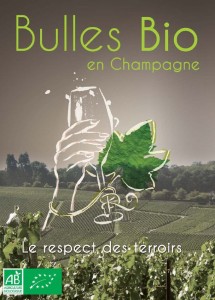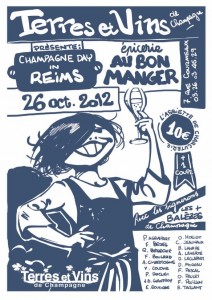The first thing I read this morning was “The latest stimulant to drag me out of natural wine commentary retirement was the ‘debate’ during the European Wine Blogger’s Conference in Turkey. Turns out this wasn’t a debate as much as it was a presentation–one that could have been entitled, Natural Wine? Wrong! Sorely missing on the panel was a winemakeris committed to working with nothing added or taken away. Without it, the genre of wine was merely a headline without a voice.”, which is an
extract of an article by Alice Feiring entitled EWBC–the natural wine edition. Gabriella Opaz, one of the organisers of the EWBC had posted it in the #EWBC group on FB.
The post hit a note… First of all I immediately clicked on the link and read the whole article, which I thought was excellent as it touched on a few interesting and in my opinion important points. First of all like Alice pointed out, this was not really a debate but instead it was a presentation by 4 different people all kind of stating that in a way all wine is natural, therefore natural wine is probably not the best term to describe these wines made in a non interventionist way.
I have to admit to be more than a little confused about why there still seems to be a need to continue the discussion about the name “natural wine”- rather than the wine or the philosophy behind the making of these wines. As far as I see it the term “natural wine” is already well established and being used today. To illustrate: in the last week I have had lunch in a restaurant where the wine list had a large “vins natures” section, I also saw several online retailers in Belgium and France with a section “vin nature”, and tasted several wines at the grand tasting in the Palais de Congres in Beaune last week which were presented as vins natures.
Natural wine evokes a certain idea or image in our mind – it refers to a certain philosophy in wine making whereby the grapes are grown organically or sustainably and where wine making interventions are kept to a minimum. As most people have their own idea as to what these minimal wine making techniques are nothing is set in stone, but the underlying idea is to bring you the wine in its purest state.
Why do I feel the need to let myself once again be dragged into this debate?
Well the answer is my quest for terroir in wine. I look for terroir as it gives me a sense of authenticity – it tells a unique and rare story of a place in time as expressed by a winemaker and it makes me feel special. And it is this precious “special” feeling that I look for when I eat and drink. I also feel, and this may be even more controversial, that this place in time needs to be alive and buzzing to the artisan for him to amplify these sensations. So in a way this means that for me terroir wine can only come from a living terroir and living soil; something which is generally achieved through farming according to organic or biodynamic principles. To paint a true picture of this living terroir, one needs, again in my opinion, to intervene as little as possible and use as many elements as nature has given us at that time.
The second reason why Gabriella’s post this morning hit a note is that it made me want to write more about terroir Champagne. In Champagne (natural) terroir wines are rare – yet they are the wines which have been rocking my world since I arrived here – they are my exciting category! Hence they are the wines and the producers I have been drawn to and they are also often the wines I address here in this blog.
Today I want to talk about 2 amazing events/tastings I attended last month. To me they were extremely interesting and awesome as all the wines I tasted had a “terroir” story to tell ;-)
The first even was Bulles Bio en Champagne, a tasting showcasing the Champagnes of 11 certified organic producers. It is important to note these 11 growers have committed to organic wine growing in a marginal wine growing region by opting for the official certification. This choice significantly limits their options when fighting diseases; it also limits their potential yields and volumes per hectare. And in a difficult year like 2012, a lot of these growers were significantly down in volume.I was particularly impressed by the quality, liveliness and uniqueness of these wines; each wine was distinctively different and a true reflection of its place in time as expressed by the passionate winemaker. And this was something that really stood out – all 11 winemakers were really passionate – passionate about their wines, terroir, nature as a whole and an organic way of living more specifically. The members of the group whose wines I tasted were Françoise Bedel, Francis Boulard et Fille, Thierry Demarne, Jean-Pierre Fleury, Bertrand Gautherot, Vincent Laval, David Léclapart, Champagne Leclerc-Briant, Christophe Lefevre, Bruno Michel and Franck Pascal. Enjoy their wines and allow yourself to (time) travel to their place in time -you will be amazed by the purity and intensity of these remarkable champagnes!!
My terroir experience continued on the 26th of October when I attended the 3rd Champagne Day party hosted by Terres et Vins de Champagne. Terres et Vins de Champagne groups together an eclectic group of vignerons who have as a slogan on their site “J’aime le goût de la terre et les vins culturels” (I like the taste of the soil and cultural wines). It is a project which formed around the shared passion of these 19 vignerons to show off their “Authentic Champagnes”. I first was introduced to the group last year, also on Champagne day, just before I moved here, and was in awe by the diversity of terroirs. Once again each wine tells a story and takes you on a private and unique voyage. And this informal tasting where one can really exchange ideas and communicate with the winemakers really oozed of authenticity and originality!The wines were paired with a plate of terroir nibbles – all produced in an artisan way and carefully selected by the “Epicerie Au Bon Manger”, the place to shop for authentic and very good quality cut meats and cheeses, Champagne lentils, chocolate, wine and other grocery items :-) I loved the way these terroir wines were paired with terroir food as I believe that if one looks for authenticity, one generally does this across the board! The following growers make up Terres et Vins de Champagne: Pascal Agrapart, Françoise Bedel, Raphael Bérèche, Francis Boulard, Alexandre Chartogne, Vincent Couche, Pascal Doquet. Jean-Baptiste Geoffroy, Etienne Goutorbe, Olivier Horiot, Cyril Jeaunaux, Benoit Lahaye, Aurélien Laherte, David Léclapart, Dominique Moreau, Franck Pascal, Olivier Paulet, Fabrice Pouillon and Benoit Tarlant. As you can see some growers are in both groups – but again if you are attracted to the natural wine philosophy, do look out for wines from these people, they so do tell a story and in my opinion they are some of the best terroir Champagnes money can buy!


